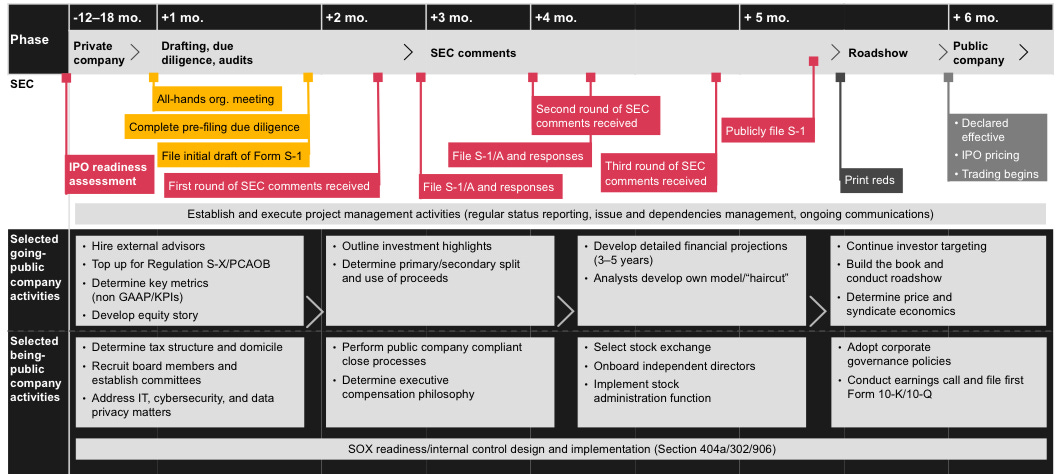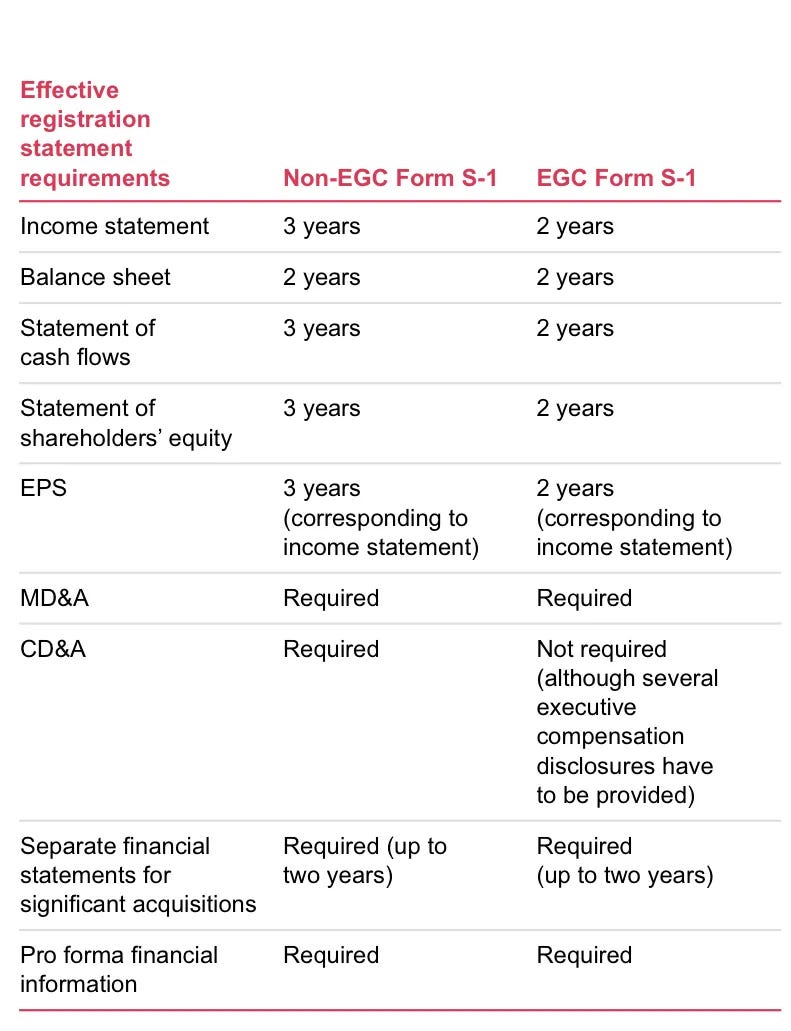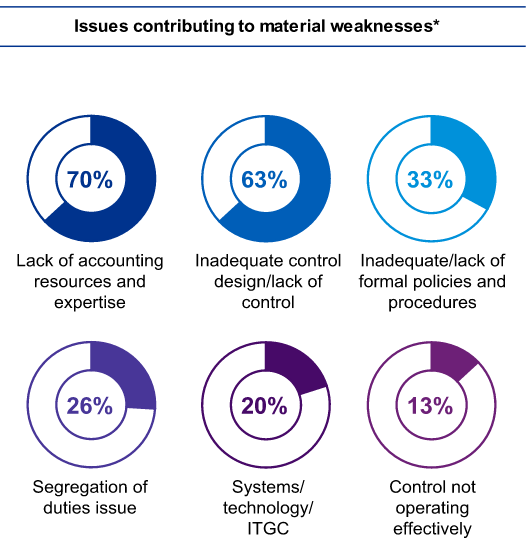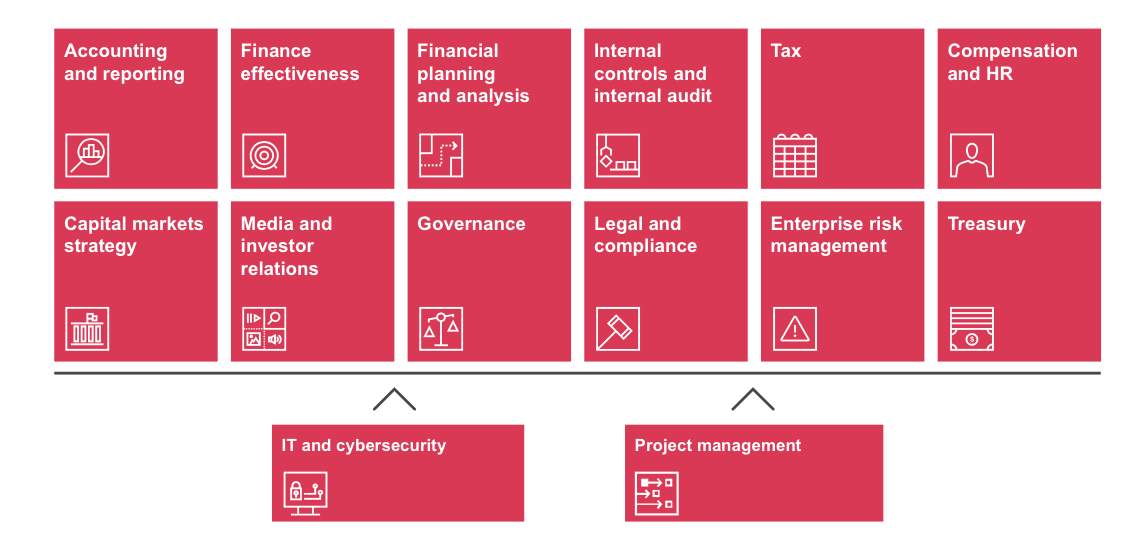📚IPO Preparation Guide
Thinking about an IPO? Read this 👇
I just published a SaaS Chart of Accounts Guide with NetSuite. A good chart of accounts is the foundation for all financial reporting so make sure your company is set up properly!
This guide includes a full sample chart of accounts and department listing. It is exactly what I use as a finance leader at software companies.
IPO Preparation
When and how should companies prepare for an IPO?
The #1 priority is obviously having a successful business that is worthy of being a public company. Nothing else matters if you don’t have that!
But…the preparation to actually be a public company can also take a long time. Do not let the accounting, finance and other required preparation delay your company from being able to IPO when the rest of the business is ready.
Forward this guide to your finance/accounting teams so they know their role and what they need to do!
Is 2025 the year of IPOs?
I really hope so!
The “IPO window” (i.e. best time to go public) has been mostly shut for the past few years, but I am hoping that changes in 2025 so companies that have the right financial metrics need be prepared!
There have only been a few “significant” cloud IPOs in the past three years — Klaviyo, OneStream, Rubrik, ServiceTitan and SailPoint.
There are SO many late stage unicorns that have been stuck in IPO limbo. Lots of companies are hoping that 2025 is their year. If they are ready from a metric standpoint then I hope they have done the other preparation as well…
IPO Preparation Timeline
There are two primary aspects of being IPO ready:
Financial and metric readiness
IPO/Public company readiness
1. Financial & metric readiness
As mentioned earlier, this is priority #1!
The big question is whether public market investors will be excited and can the company maintain that enthusiasm. If not, then the company will struggle with an IPO and being a public company.
There are plenty of companies that IPO’d in 2021 that should never have been public companies (like most of Chamath’s SPACs 🤣). These companies’ stock prices have cratered since their IPO….But now they are public they have the high costs and scrutiny of being a public company.
What will it take to IPO in 2025?
The focus of today’s post is the preparation required to IPO.
What I will say though is that A LOT of “unicorn” companies have fallen off the IPO path and haven’t realized it yet. Make sure you are still on the IPO path before you spend too much time preparing to be a public company.
2. IPO/Public Company Ready
Ok! You got a business worthy of being public. The hard part is done! So now what?
Getting a company actually ready to be a public company can take a surprisingly long time and require a lot of hard work, particularly from finance and accounting.
Below is a summary from PwC on rough timelines and milestones for an IPO — the biggest takeaway is that IPO planning should start 18 to 24 months before the IPO.
It can be done in a shorter timeline…but it will be HARD!
The IPO Preparation
Building the IPO Team
The management team is the single most important, non-financial factor in preparing for an IPO and being a public company. But beyond the management team there are lots of people (both internal and external) to the company that you must have for a successful IPO and life as a public company.
Lots of companies start thinking about this way too late…
The Board of Directors
Determine early if your board composition will satisfy SEC and listing exchange requirements so you have time to make the necessary changes. Boards are required to have a majority of independent directors within one year of being public.
Finding good independent board members can take time. Begin early so you can find the right people.
Set up the required board committees. The first two committees below are frequently established earlier while the third is often set up shortly before an IPO.
Audit committee
Compensation committee
Nominating & corporate governance committee
The CFO Team
Most of the responsibility for IPO preparation is on the CFO’s team — specifically the accounting and finance departments.
Having the right CFO with IPO and/or public company experience will make things way easier and smoother. It can be OK for the CFO to not have IPO experience (many have done it) but they need to rely heavily on their network and advisors for help through the process.
Below are a few of the important resources that companies need to think about:
Technical Accounting - Should have someone internal but will likely also need outsourced technical folks. There is lots to do in an IPO process to make sure all complex accounting matters are handled properly
Controller - Someone that knows what it takes to be a public company (strong Big 4 experience, public company experience, etc)
Financial Reporting - Often not hired until IPO preparation begins but large private companies might need someone earlier. You will likely also need external help as well.
Tax Specialist - becoming a public company can have huge tax implications and a tax expert should be brought on early in the process to help with optimal legal tax structures, internal controls, tax positions, etc.
Internal Audit - Maintaining a proper internal control environment is critical, especially as a company prepares to be compliant with Sarbanes-Oxley Act (known as “SOX”)
Investor Relations - Often hired during some point of the IPO preparation process.
Management Team
Are there any other areas of the management team that need to be built out?
Do any current leaders need to be “topped” (i.e. add someone above them) with the right experience?
External IPO team
There are a lot of external experts and advisors you need during the IPO process.
Underwriters - These are the folks that run the show and should be found early in the process as they will help guide everything else.
IPO legal counsel - You should have a strong internal legal team too!
Capital markets advisors
Auditors - You may need to upgrade to bigger firm if you aren’t using Big 4. Also, ensure you have proper independence with the audit firm.
Accounting Advisors - Your internal team still has their day jobs to do so the accounting advisors will help with additional technical accounting documentation, drafting financials needed for an IPO, etc.
Risk Advisors - help support and enable companies to become SOX compliant
Accounting & Finance IPO Preparation
Accounting is the #1 reason for delayed IPOs. A delayed IPO can add significant risk into missing the IPO window, so it is important to get ahead of these issues early.
What financial information is required?
An S-1 is a document that the SEC requires companies to file in order to publicly offer new securities (i.e. an IPO). The S-1 is a couple of hundred pages document that contains a ton of information about the company. It is NOT just financial statements and disclosures that your accountants can handle.
There is a massive amount of work to prepare the S-1 and basically your entire IPO team will be involved. While your accounting team may own a large portion of the required work, it will be time consuming for many others as well.
S-1 Financial Requirements
Most tech companies IPO under the EGC (emerging growth company) requirements. The Jobs Act of 2012 provides a time period of relief from certain public company requirements:
Less financial reporting requirements (2 years of financials vs 3 years)
Can adopt new accounting standards at the same time they are required for private companies, which is usually a year later.
Provide less detailed executive comp disclosures.
Exempt from the requirement to get an audit over internal controls over financial reporting
While these exemptions provide a ton of relief, companies need to monitor when they will no longer qualify for these EGC exemptions so they are prepared to meet the full public company requirements.
Below is a nice summary from PwC of the financial reporting requirement differences between EGCs and non-EGCs.
Getting the auditors involved early is critical because even the EGC requirements can take a long time. The below two items are two of the major milestones that the internal accounting team and auditors must perform:
“Audited” financial statements for the last two years
“Reviewed” quarterly financials for at least 8 quarters
In addition to the annual audited financials, companies will want to present the last ~8 quarters of financial information so investors can see a trend. Quarterly financials don’t need to be audited but they must be “reviewed”.
Having been on the other side of this (as a Big 4 auditor) both of these (annual audits and quarterly reviews) can take a REALLY long time. Audits are by far the most time intensive, but the reviews can take quite a bit of time as well for both internal resources and for the auditors. If your company hasn’t been closing the books properly on a quarterly basis then they may have a lot of work to make sure each quarter is correct (often referred to a “quarterization”).
You may have been passing your previous financial audits, but those were likely under AICPA standards. When you have decided to go public you must get an audit under PCAOB standards, which is a more intense audit.
Accounting Issues
There are a lot of complex accounting areas and SEC hot topics that companies should make sure are buttoned up early in the IPO prep process. Below are many of the ones I have seen that require a lot of work and/or frequently receive SEC comment letters.
Non-GAAP stuff and KPIs - The SEC pays a lot of attention to these areas and they are a frequent area of SEC comment letters (a letter from the SEC requiring a response from the company)
Risk factors - Legal helps drive this but it can take a lot of work to capture everything.
Revenue recognition - Revenue is the most critical line item on the financials so it receives a ton of attention.
Cheap stock - Refers to equity awards issued 1-2 years before an IPO that is significantly below the expected IPO price. If the fair value of those awards were significantly less than the IPO price there may be concern that not enough expense is being charged.
Acquisitions - Material acquisitions within the 2 year financial requirements may require separate financials for the acquired entity. Be careful with acquisitions during this period as it could delay an IPO because of this requirement.
Related party transactions - The SEC requires >$120k. Start tracking related party transactions early
Management Discussions & Analysis (MD&A) - The SEC loves to poke here and provide comment letters.
Consolidation accounting
Control Environment - While there are certain SOX exemptions for EGCs, companies still need to disclose whether there are “material weaknesses” in the financial control environment. A material weakness means that controls are bad enough that there is a reasonable possibility that material misstatement in the financials may exist.
Failed to render LaTeX expression — no expression found
Other Accounting Considerations
Can the team consistently close the books timely and accurately?
Upgrading systems and tools appropriate for a public company
Evaluating the impact to NOLs (net operating losses) with an ownership change of IPO. When there is a 50%+ ownership change over 3 years then some of the company’s NOLs will be limited, which can create a major tax loss once the company is profitable.
Perform tax analysis to understand tax exposure and ensure proper sales tax, VAT, GST, etc are being properly collected and remitted.
Finance & Investor Relations Considerations
Finance IPO Preparation
By far the most important requirement is for the finance team to be able to consistently provide accurate forecasts. The public markets will destroy a company that is unpredictable and can’t accurately forecast revenue and expenses.
One of the most important things in preparing to IPO is acting like a public company for at least one year before the actual IPO. The finance team needs to show they can set accurate forecasts and create a good “beat and raise” strategy where they consistently beat forecasts (by a reasonable margin) and raise forward looking guidance.
Executive Coaching & Education
Many CEOs and other executive team members don’t have IPO experience and/or it has been a while before they have been at a public company. These folks (and the broader company to a lesser extent) need to be educated and coached in preparation for being a public company
As I mentioned earlier, acting like a public company at least one year before an IPO is critical. Part of acting like a public company is performing mock analyst and investor presentations, test the water meetings, roadshow presentations, etc. Earnings calls and investor presentations become a major part of life for a CEO and CFO. They need to be handled well so preparation and practice are key.
Other IPO Preparations
As you can tell from all the work mentioned so far, IPO preparation is a company-wide effort. While a lot of the work is concentrated in a few areas, a successful IPO requires a lot of cross functional work.
Here are some other things to think about in IPO preparation:
HR and policies - Make sure all of these are updated and will meet a public company’s needs
Rule 701 - Your lawyers are hopefully tracking this…
409A valuation reports:
Increase frequency to quarterly 1-2 years before an IPO
Switching to the PWERM method 1-2 years
Related party transactions - Make sure you consider this early and have a policy in place. It never looks good when there are a bunch of related party transactions with the CEO and their family (check out Domo’s S-1 for a bad example of this)
Cap table - A LOT of companies have messy records and the cap table needs to be cleaned up before going public. This can take a long time if its messy.
Corporate insurance needs - Exposure to liability is much higher for directors and officers of public companies than for private companies. Talk through required insurance changes with an experienced broker.
Concluding Thoughts
There is no way to cover everything a company should do in preparation for an IPO without it being a thousand pages long, but I think I touched on most of the key areas.
The biggest takeaway is that preparing for an IPO can take a REALLY long time, a lot of work, and can be very expensive. So start the conversations early (two years in advance). And get the right advisors early in the process to help guide you through it.
But also…don’t start IPO preparation too early and burn time and money on something that is realistically several years away in a best case scenario. LOTS of companies want to IPO, but that reality is most don’t. I will do a separate post on the metrics I think are required to IPO in 2025 which should help be a guide on timelines.
I look forward to seeing more tech IPOs in 2025!
Footnotes:
Check out this SaaS Chart of Accounts Guide I made with NetSuite
Need a fractional CFO or bookkeeper? I have sent a lot of SaaS companies to jon@grandviewcfo.com - they do great work!
Check out OnlyExperts to find offshore accounting resources. They have some amazing talent for 20% the cost of a U.S. hire








From a purely self-interested perspective as a public markets investor, it would be great if more companies went through this checklist and took the steps necessary to go public because I would have more opportunities to generate great returns.
On the other hand, I empathize with the founders of high caliber companies, e.g. Stripe, SpaceX, ByteDance, preferring to avoid the hassles and compliance involved with going and staying public.
Today, there's plenty of money in the private markets wanting to invest in great businesses. Being a public company means that a tiny shareholder (literally just 9 shares) can derail the CEO's entire compensation plan (Tesla).